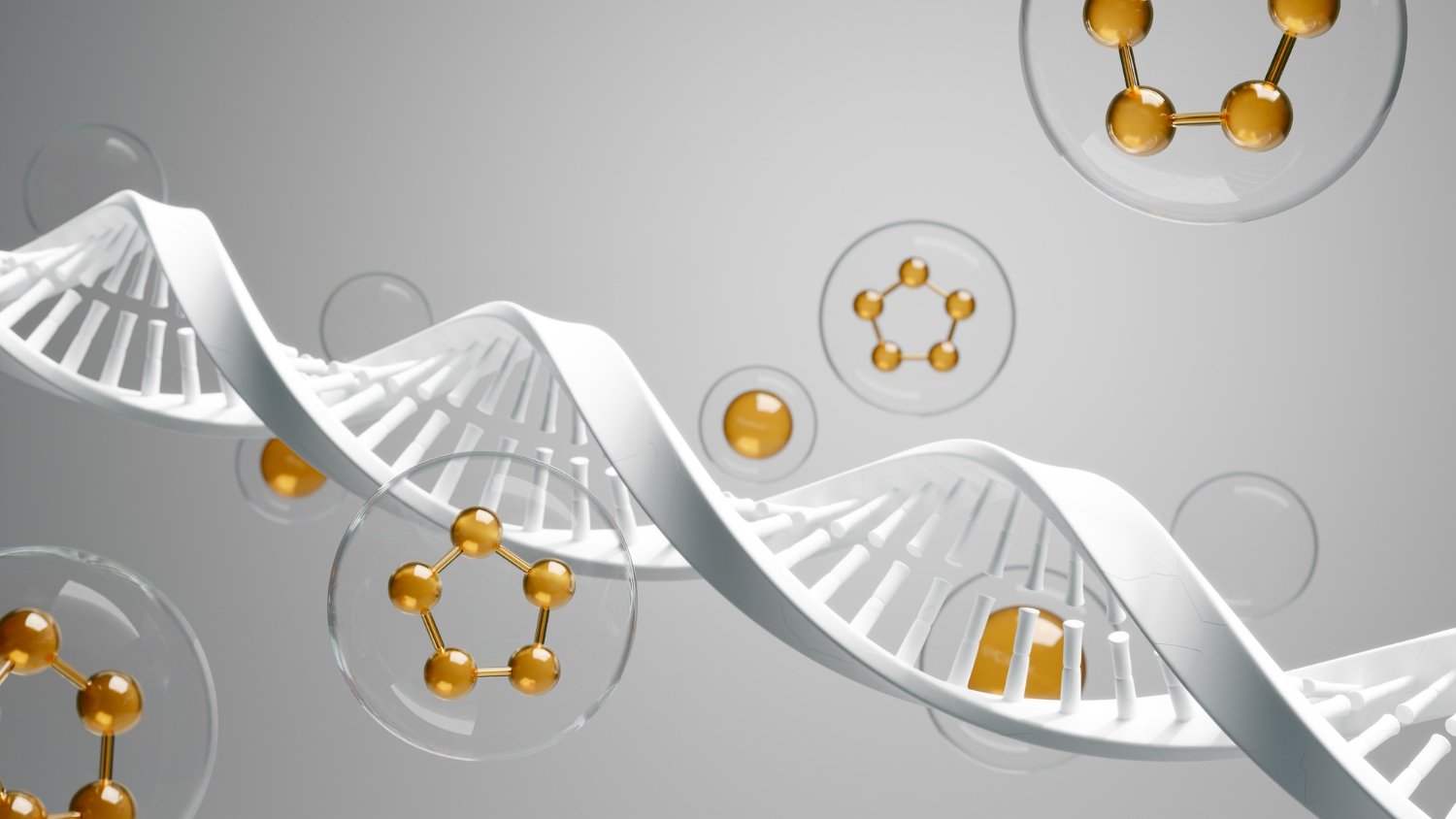Many people are facing a challenge that isn’t often talked about diabetes-related erectile dysfunction (ED). If you or someone close to you has diabetes, the term might be familiar.
It’s a problem affecting lots of men with diabetes, making their daily life difficult. Here’s an intriguing fact to consider: men with diabetes have a chance of experiencing ED that is 3.5 times higher than those without.
This blog aims to shed light on this sensitive topic by exploring the ties between diabetes and erectile dysfunction, understanding its causes, and looking at how it can be managed or treated.
We’ll dive into everything from lifestyle changes to emerging therapies that could make a significant difference. Ready for some hope and clarity? Keep reading!
Prevalence and Impact of Diabetes-Related Erectile Dysfunction (ED)
Diabetes-related erectile dysfunction (ED) is a prevalent issue among individuals with diabetes, impacting their quality of life and overall well-being. The link between diabetes mellitus and ED is significant, affecting the prevalence and severity of ED in diabetic patients.
Connection between DM and ED
Men with diabetes mellitus (DM) are significantly more likely to experience erectile dysfunction (ED), showing a 3.5-fold higher prevalence compared to men without DM. This strong link stems from the damage diabetes can cause to blood vessels and nerves, both crucial for achieving and maintaining an erection.
Blood sugar levels that remain high over time impair small blood vessels and nerves, reducing blood flow to the penis which is essential for an erection.
The impact of ED in men with diabetes also grows with age, as evidenced by studies reporting up to 100% prevalence in men aged over 70 years. Factors such as the type of diabetes, its duration, treatment methods, and other health conditions play pivotal roles in determining the severity of ED experienced by these individuals.
These findings pave the way for discussing complications and treatments affecting ED in patients with DM.
Complications and treatments affecting ED in DM patients
Diabetes mellitus (DM) brings with it complications that significantly impact erectile dysfunction (ED). Major challenges include cardiovascular events, nephropathy, and neuropathy.
All of these conditions can harm blood flow and nerve function, critical factors for achieving and maintaining an erection. Cardiovascular disease, in particular, not only increases the risk of ED but is also a leading cause of death among DM patients.
This close relationship highlights the need for careful monitoring and management to prevent ED’s progression.
Treatment options focus on managing both DM and ED together. Phosphodiesterase type 5 inhibitors (PDE5is) stand out as the first-line therapy for erectile dysfunction across various causes, including diabetes.
Clinical trials have shown their effectiveness in improving erections in men with diabetes by enhancing blood flow to the penis. Alongside medication, lifestyle changes such as diet improvement and regular exercise are advised to tackle underlying diabetic conditions that contribute to ED.
With proper treatment plans focused on comprehensive health improvement, significant strides can be made towards reducing ED’s burden in diabetic patients.
Understanding contributing factors further unravels how diabetes affects sexual health. This is the core issue to understand when learning about diabetes-related erectile dysfunction.
Contributing Factors to ED in DM
Diabetes mellitus increases the risk of erectile dysfunction due to its impact on blood vessel and nerve function. The prevalence and severity of ED in DM patients are closely linked to complications and cofactors that underpin the pathophysiology of this condition.
Risk factors for DM and its complications
Living a sedentary lifestyle, being overweight or obese, and consuming too many calories are common risk factors for developing diabetes mellitus (DM) and its complications. These factors significantly increase the likelihood of experiencing health issues like erectile dysfunction (ED) in men with DM.
The severity of such complications often depends on how long someone has had DM, what treatments they use, and other health problems they might face.
Age, obesity, lack of exercise, smoking along with conditions such as hypertension, dyslipidemia, and cardiovascular diseases further complicate ED in diabetic patients. These elements contribute to the complex relationship between DM and ED by affecting blood flow and nerve function essential for normal erectile function.
Moving forward explores the prevalence and severity of diabetes-related erectile dysfunction in individuals.
Prevalence and severity of ED in DM patients
Understanding the risk factors for diabetes mellitus (DM) and its complications sets the stage for discussing how frequently erectile dysfunction (ED) occurs in patients with DM and how severe it can be.
ED is notably more common among men with DM, affecting them 3.5 times as often as those without this condition. This statistic highlights a significant challenge facing many patients managing their diabetes.
The severity of ED in individuals with diabetes varies widely, closely linked to factors such as the type and duration of diabetes, the treatments employed, and other health conditions they may have.
With an incidence rate of ED estimated at 25–30 cases per thousand males, it’s clear that sexual dysfunction is a prevalent issue among adult men, particularly as they age.
The complexity of diabetes-related erectile dysfunction involves various contributing elements including vascular issues, hormonal imbalances like low testosterone levels, neurological factors, medications that interfere with sexual function, and psychological distress.
Role of complications and cofactors in ED pathophysiology
Complications and cofactors play critical roles in the pathophysiology of erectile dysfunction (ED) among diabetic patients. Vasculogenic issues, arising from damaged blood vessels due to high blood sugar levels, significantly diminish blood flow to the penis, impeding erections.
Neurogenic factors also contribute as diabetes can damage nerves that signal an erection. Low testosterone levels, common in men with diabetes, further complicate this picture by reducing libido and erectile function.
Psychological aspects cannot be overlooked; the stress and anxiety associated with managing a chronic condition like diabetes often exacerbate ED symptoms. Iatrogenic causes, such as side effects from medications used to treat diabetes or its complications, add another layer of complexity.
Given these interconnected factors, understanding the intricate relationship between ED and diabetes necessitates a comprehensive approach that addresses not just glucose control but also vascular health, hormonal balance, and emotional well-being.
Next up is exploring how specific complications linked to both conditions further compound these challenges. Learning about diabetes-related erectile dysfunction can be very important for some people.
Complications and Comorbidities Related to DM and ED
Complications and comorbidities linked to diabetes-related erectile dysfunction include cardiovascular events, nephropathy, neuropathy, hypertension’s impact on ED, dyslipidemia’s association with ED, obesity’s influence on ED, and the correlation between hypogonadism and ED.
These health issues affect many individuals living with diabetes-related erectile dysfunction.
Cardiovascular events
Heart disease is a leading cause of death and serious illness in people with diabetes. Studies show a strong link between erectile dysfunction (ED) and heart conditions. In fact, ED may signal heart problems up to five years before they become apparent, especially in men younger than sixty.
This connection highlights the need for individuals with ED to undergo thorough cardiovascular assessments.
Diabetes increases the risk for various cardiovascular issues such as coronary artery disease and stroke. High blood pressure, common among diabetics, can also damage arteries in the penis, making it hard to achieve an erection.
Keeping blood sugar levels under control and managing high blood pressure are crucial steps in reducing both the risk of heart disease and the severity of erectile dysfunction.
Nephropathy
Nephropathy, a significant complication of diabetes, affects between 20% and 40% of diabetic patients. This condition mainly results from increased arteriolar resistance and is closely linked with albuminuria.
Beyond its direct health implications, nephropathy plays a crucial role in the development of erectile dysfunction (ED) among those with diabetes. The severity of ED tends to escalate alongside the complexities brought on by nephropathy.
Research underscores how this particular kidney-related issue exacerbates ED in individuals grappling with diabetes. With more severe complications and co-morbidities associated with diabetic nephropathy, managing ED becomes increasingly challenging.
These insights pave the way to comprehending why rigorous control and management of both diabetes and its related complications are vital for mitigating the adverse effects on erectile function.
Moving beyond the kidneys, another critical aspect influencing sexual health in diabetics involves neuropathy. You need to consider this when learning about diabetes-related erectile dysfunction.
Neuropathy
Diabetic neuropathy impairs nerve conduction, leading to erectile dysfunction (ED) in diabetic patients. A strong correlation exists between neuropathy, albuminuria, and ED within this specific population.
Notably, the interconnected nature of neuropathy, hypogonadism, and ED exacerbates the severity of erectile dysfunction among diabetic individuals. Additionally, a study has revealed an inverse relationship between the severity of erectile dysfunction and testosterone levels – indicating a potential link with neuropathy.
This underpins the intricate web of complications involving hypogonadism, insulin resistance, and low testosterone levels in diabetic patients.

Hypertension and its impact on ED
Hypertension significantly affects erectile function in patients with diabetes. High blood pressure can lead to penile arterial dysfunction, reduced blood flow, and endothelial damage, impacting erection.
Studies show a strong association between ED and hypertension, even after adjusting for other factors. Some medications used to treat hypertension can also negatively impact sexual and erectile function.
Customised anti-hypertensive therapies are recommended for diabetic patients, with specific classes of medications showing varying effects on erectile function.
Dyslipidemia and its association with ED
High levels of LDL, low HDL levels, hypertriglyceridemia, and low serum testosterone are linked to dyslipidemia and ED. Dyslipidemia is an independent risk factor for ED in diabetes patients, with a higher risk for those with both conditions.
Statins are commonly prescribed for dyslipidemia but have not been found to impair erectile function in recent meta-analyses.
Obesity and its influence on ED
Obesity plays a significant role in influencing erectile dysfunction (ED) among individuals with diabetes. The accumulation of visceral adipose tissue linked to obesity has been associated with chronic low‐grade inflammation, promoting arterial dysfunction and reduced testosterone levels.
Moreover, comprehensive metabolic assessment and routine hormonal screening for male hypogonadism should be recommended in male patients with obesity alongside diabetes-related erectile dysfunction.
Weight loss through lifestyle modification, diet, exercise, or bariatric surgery has been shown to improve erectile function in obese men grappling with diabetes-related ED. It is crucial to recognise the impact of obesity on the development and progression of ED as part of comprehensive patient management strategies.
Hypogonadism and its correlation with ED
Low testosterone levels are prevalent in men with type 2 diabetes mellitus (T2DM), and it is associated with erectile dysfunction (ED). A significant number of T2DM patients, nearly 40%, have low testosterone levels, while over 90% experience ED.
Studies have highlighted that low testosterone levels are linked to inappropriately low gonadotropin levels in most DM patients, indicating functional secondary hypogonadism. Moreover, research has revealed an inverse relationship between the severity of ED and testosterone levels among individuals with T2DM.
Furthermore, it’s been established that hypogonadism and low testosterone levels can co-occur with obesity and metabolic syndrome in T2DM patients. Notably, insulin resistance and adiposity are associated with lower testosterone levels, contributing to a complex interplay between these factors. There are many things to consider when learning about diabetes-related erectile dysfunction.
Current and Emerging Therapies for ED in DM
Current and emerging therapies for erectile dysfunction in diabetes mellitus include lifestyle changes and pharmacological treatments. Testosterone replacement therapy is also considered as a potential treatment option.
Lifestyle changes
Lifestyle changes can significantly improve diabetes-related erectile dysfunction in men. Weight loss through diet, exercise, or bariatric surgery has been shown to enhance sexual function in obese diabetic men.
Physical exercise is strongly recommended for both type 1 and type 2 diabetic patients as it aids in weight loss, better blood glucose control, reduced cardiovascular risk, and improved sexual well-being.
Additionally, improvements in sexual function have been reported with reduced caloric intake and a Mediterranean diet along with increased physical activity.
Pharmacological treatments
PDE5 inhibitors serve as the primary pharmaceutical intervention for erectile dysfunction (ED) in diabetic individuals. Clinical trials have shown that these inhibitors substantially improve erectile function when compared to a placebo.
Moreover, various PDE5 inhibitors differ in their pharmacokinetics and dynamic properties, leading to variations in action duration and administration methods. Notably, vardenafil and mirodenafil have been highlighted for their potential efficacy and favorable safety profiles in patients with diabetes mellitus.
Testosterone replacement therapy for diabetes-related erectile dysfunction
Moving from pharmacological treatments to testosterone replacement therapy, it is essential to consider the role of TRT in managing erectile dysfunction (ED) among men with diabetes.
Up to 40% of men with type 2 diabetes mellitus (DM) exhibit low testosterone levels, and more than 90% experience ED. This necessitates a tailored approach towards understanding the impact of TRT on this patient population, particularly considering the emerging evidence regarding its association with cardiovascular events in older males receiving TRT.
The Endocrine Society clinical practice guideline emphasises cautious use an individualised prescription of TRT after meticulous patient evaluation and consideration of lifestyle modifications.
Current recommendations underline that hormone profile dosage should be assessed in DM patients displaying symptoms and signs of testosterone deficiency, allowing for bespoke treatment decisions.
Final Thoughts on Diabetes-Related Erectile Dysfunction
Understanding the connection between diabetes and erectile dysfunction is crucial. Lifestyle modifications, such as weight loss and exercise, can significantly improve erectile function for diabetic individuals. Diabetes-related erectile dysfunction can be a common issue.
Additionally, pharmacological treatments like PDE5 inhibitors have shown effectiveness in managing ED. How do you plan to implement these strategies to improve the quality of life? These insights are not only practical but also hold significant potential for impacting health outcomes positively.
Consider exploring further resources to deepen your understanding of this critical diabetes-related erectile dysfunction issue.















